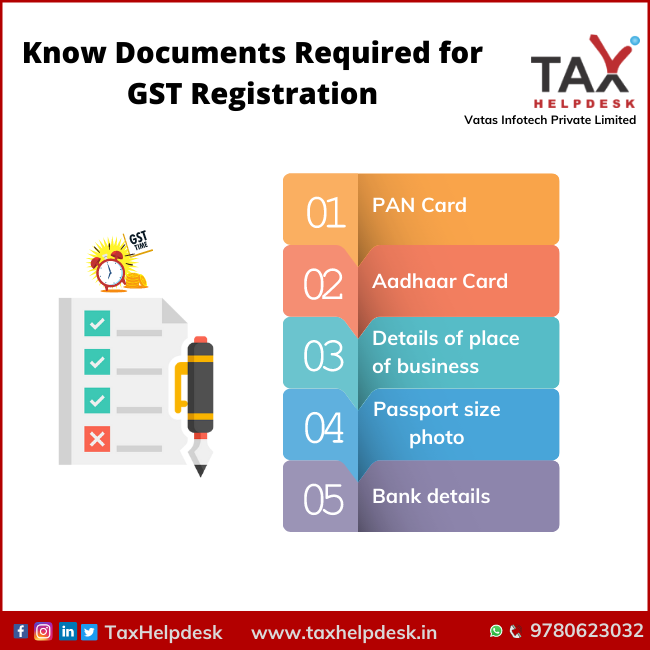Step-by-Step Refine for Singapore GST Registration Explained
Step-by-Step Refine for Singapore GST Registration Explained
Blog Article
The Ultimate Overview to Streamlining the GST Enrollment Refine and Requirements for Small Company Owners

Comprehending GST Fundamentals
To grasp the principles of the Product and Solutions Tax (GST) system, little business proprietors need to initially understand its underlying implications and concepts. Under the GST routine, businesses are called for to collect and register tax obligation on part of the federal government, making sure transparency and compliance.
Among the key principles of GST is input tax credit, which allows services to declare debt for taxes paid on their purchases. This mechanism stops the cascading result of tax obligations and promotes effectiveness in the tax obligation system. In addition, GST is a destination-based tax obligation, implying that the tax obligation is levied at the point of intake as opposed to the point of origin. This ensures fair circulation of tax obligation profits among states based on where the items or solutions are taken in. Understanding these fundamental concepts is critical for small company owners to navigate the intricacies of the GST system and make certain compliance with the legislation.
Eligibility Requirements for Registration
Having developed a fundamental understanding of GST principles, tiny organization proprietors should currently meet details eligibility criteria to continue with the registration process. In India, entities took part in the supply of products or solutions with an annual accumulation turnover exceeding Rs. 40 lakhs (Rs. 10 lakhs for unique category states) are needed to register for GST. Additionally, particular services such as those involved in inter-state supply of goods, informal taxed individuals, and those needed to pay tax under the reverse cost system need to sign up for GST regardless of their turn over. Moreover, companies that were registered under the previous tax regimen (BARREL, service tax, and so on) are also mandated to register under GST. Nonetheless, agricultural organizations that only provide generate out of key production are exempt from GST enrollment. It is crucial for local business owner to carefully analyze their qualification based upon these requirements to make sure compliance with the legislation and stay clear of any penalties for non-compliance.
Documents Needed for GST Registration

Simplified Enrollment Process Actions
Complying with the collection and confirmation of the requisite papers, the enrollment procedure for GST can be navigated with a series of simplified steps designed to help with effective conformity for small business owners. The initial step includes going to the GST website and choosing the 'New Registration' alternative. Consequently, the candidate needs to complete Part A of the GST REG-01 form with details websites such as PAN, mobile number, and email address to obtain an OTP for confirmation. When the OTP is gotten and gotten in, a Momentary Reference Number (TRN) is produced for additional procedures. The following step needs submitting Part B of the type with needed company information, publishing supporting documents, and finishing the confirmation process using DSC or EVC. Upon successful verification, an Application Reference Number (ARN) is provided, suggesting the completion of the GST registration procedure. By adhering to these streamlined steps, local business owners can properly register for GST and make sure compliance with tax regulations.
Tips for Ensuring Conformity
To keep regulatory adherence and functional integrity, thorough oversight and proactive actions are pivotal in making certain compliance with GST demands for small service proprietors. Local business owners need to stay upgraded with GST laws, filing deadlines, and any kind of modifications in tax obligation prices to prevent fines and preserve a great standing with tax authorities. One necessary idea for compliance is to maintain exact and in-depth records of all transactions, including expenditures, billings, and invoices associated with GST. Frequently fixing up monetary documents with GST returns can help imp source in recognizing and fixing any kind of disparities without delay. In addition, conducting periodic interior audits or looking for specialist assistance can ensure that business is following all GST rules appropriately. It is also important for small company owners to purchase GST-compliant bookkeeping software that can improve the tax obligation declaring process and reduce errors. Last but not least, attending GST understanding workshops or training programs can boost understanding and conformity with GST regulations, eventually benefiting the service in the future.
Conclusion
In verdict, small company proprietors must understand the fundamentals of GST, satisfy the qualification requirements, collect needed records, and adhere to the simplified registration process actions to make certain conformity. By streamlining the GST enrollment procedure and needs, little company proprietors can stay clear of penalties and operate their services efficiently within the lawful structure - Singapore GST Registration. It is important for small company proprietors to stay educated and compliant with GST regulations to maintain an effective service operation
Tiny business owners seeking GST registration should guarantee they gather and send the necessary files to complete the registration procedure efficiently. The documents required for GST registration typically consist of proof of service registration or consolidation, FRYING PAN (Irreversible Account Number) card of the business address, identity and entity evidence of the promoters/partners/directors, photos, address proof of the location of service, bank account statements or canceled cheques, and authorization kinds. Attending GST understanding workshops or training programs can boost understanding Singapore GST Registration and conformity with GST policies, ultimately profiting the service in the lengthy run.
By simplifying the GST enrollment procedure and requirements, small business proprietors can avoid fines and operate their businesses smoothly within the lawful structure. It is crucial for small organization owners to stay certified and informed with GST guidelines to preserve a successful business procedure.
Report this page